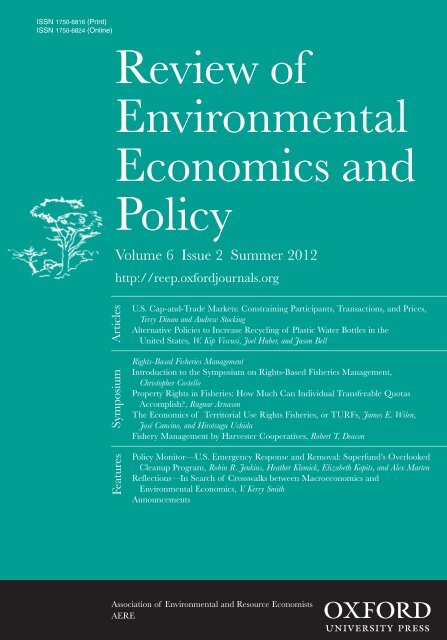Integrating Economics into Research on Natural Capital and Human Health
IF 6.6
3区 经济学
Q1 ECONOMICS
引用次数: 9
Abstract
In the past two decades, there has been a rapid expansion in research that examines the linkages between natural capital and human health. These nature–human health connections range from mangroves mitigating mortality from coastal storms to a walk in nature temporarily lowering blood pressure. While the evidence base for research on natural capital and human health is growing and study designs are becoming more advanced, we find that very few studies use an economic approach. A review of the literature reveals that few studies evaluate the costs of delivering nature’s benefits to human health, even fewer studies use benefit–cost analysis or a cost-effectiveness approach to compare alternative policy interventions, and no study evaluates the net benefits of natural capital for human health. In this article, we discuss why an economic approach is critical to advancing research on the connections between nature and human health and present a conceptual model for conducting more practice- and policy-relevant research.将经济学纳入自然资本与人类健康研究
在过去二十年中,研究自然资本与人类健康之间联系的研究迅速扩大。这些自然与人类健康的联系从红树林减轻沿海风暴造成的死亡率到在大自然中散步暂时降低血压。虽然自然资本和人类健康研究的证据基础不断增加,研究设计也越来越先进,但我们发现很少有研究使用经济方法。对文献的回顾表明,很少有研究评估为人类健康提供自然惠益的成本,甚至更少的研究使用效益-成本分析或成本效益方法来比较各种政策干预措施,没有研究评估自然资本对人类健康的净惠益。在本文中,我们讨论了为什么经济方法对于推进自然与人类健康之间联系的研究至关重要,并提出了一个概念模型,用于开展更多与实践和政策相关的研究。
本文章由计算机程序翻译,如有差异,请以英文原文为准。
求助全文
约1分钟内获得全文
求助全文
来源期刊
CiteScore
10.80
自引率
0.00%
发文量
25
期刊介绍:
The Review of Environmental Economics and Policy fills the gap between traditional academic journals and the general interest press by providing a widely accessible yet scholarly source for the latest thinking on environmental economics and related policy. The Review publishes symposia, articles, and regular features that contribute to one or more of the following goals: •to identify and synthesize lessons learned from recent and ongoing environmental economics research; •to provide economic analysis of environmental policy issues; •to promote the sharing of ideas and perspectives among the various sub-fields of environmental economics;

 求助内容:
求助内容: 应助结果提醒方式:
应助结果提醒方式:


